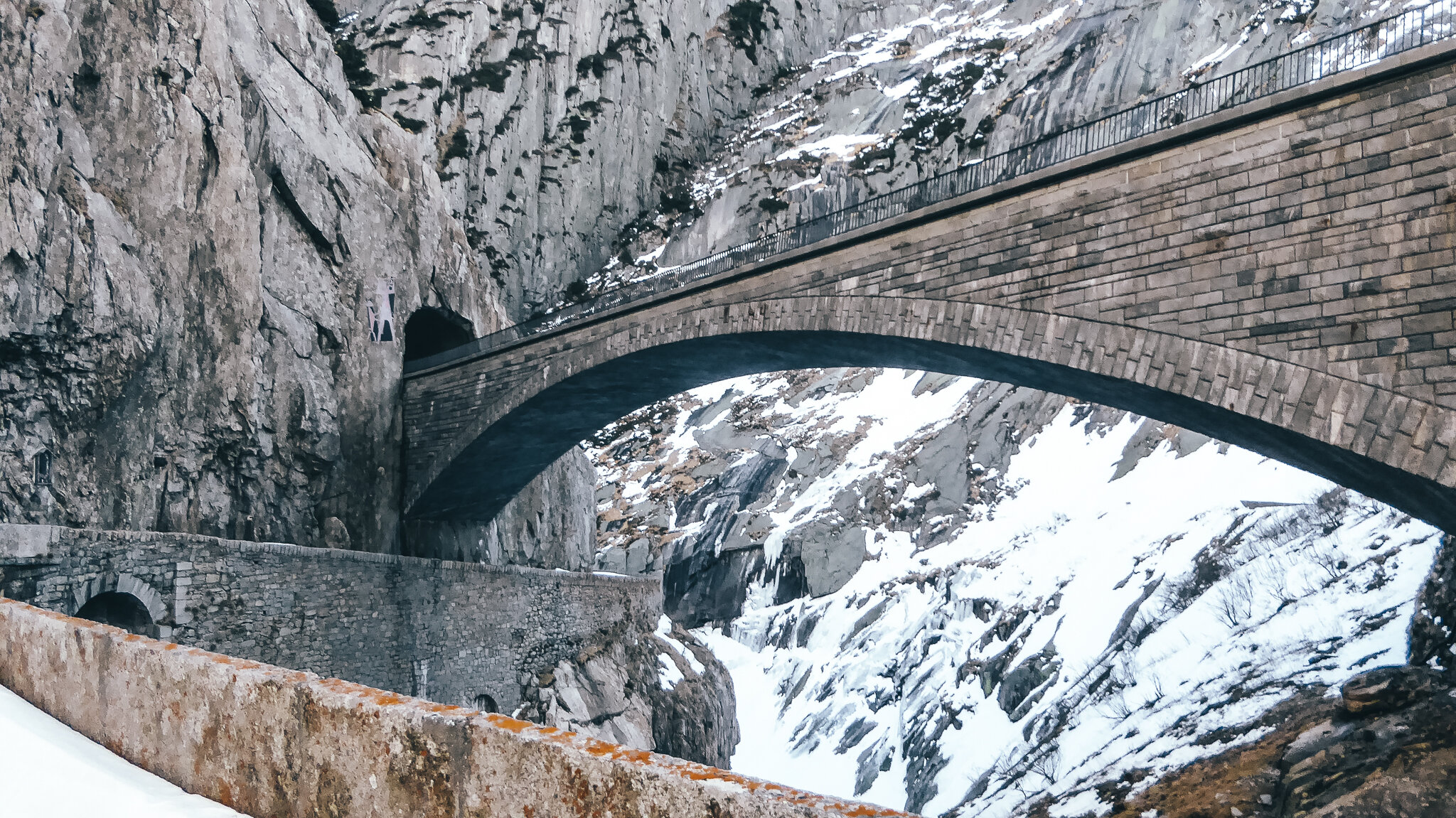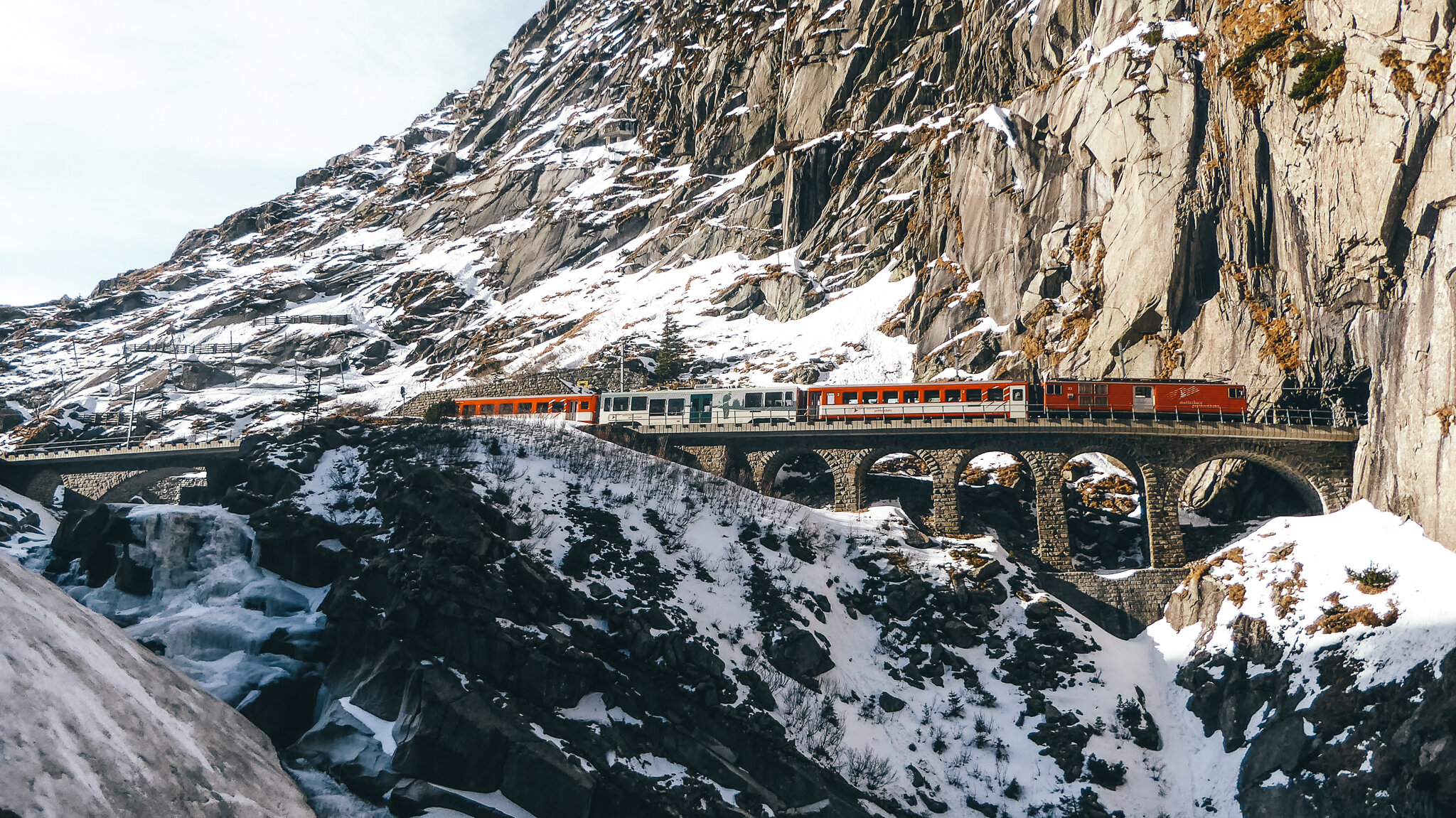Thoughts on Travelling on Trains
Here is a truism I believe in ever more strongly each time I walk out the front door: travel, in all its multifarious forms, is the most mind-broadening and informative thing most of us can do to improve our knowledge of the world on a regular basis.
For example, it’s one thing to read about climate change or to wonder about its planet-altering enormity by watching television programmes - but it is altogether more informative to stand next to a high alpine glacier in midwinter and feel a warm wind on your face.
Do that - and be told by a local expert that the ancient glacier will be completely gone in 30 years time - and you will know that climate change is happening here and now, even if you won’t learn what’s causing it.
Mountain scenery above Andermatt
I did such a thing in shirtsleeves recently, while gazing down into a high Swiss valley that was green, but should have been white.
It’s when you go to the extreme edge of things that you really see climate change in action. Mountains are the high altitude equivalent of the Earth’s Poles - they provide us with a chance to escape our temperate zones and visit places where the slightest meteorological change has its first profound effect.
And right now the great heights of Europe are telling us something big and worrying is happening.
But then, if you don’t live in Switzerland and you are not a winter-sports fanatic, why should you care about what happens in mountains? It could be that the lack of ice up there has nothing to do with the crazy conveyor belt of storms that’s been hitting Britain in recent times.
The act of travelling won’t give us any answers to that, but it can allow us a hunch or two. Nor does travel have to be quite as dramatic as standing on the edge of a midwinter glacier in a T-shirt.
Also recently I was on an early morning commuter train - but it was like no workaday journey you’d experience in the UK. A ride on the train from Andermatt to Zurich gave me plenty to think about…
Every person in the carriage was busy making business calls on mobile phones in a plethora of languages. The immaculately dressed man next to me went from English to German to French in a single call. Others were switching from Italian to Russian - one woman was using a cocktail of Mandarin, German and American English.
Can you imagine that happening on the 8.15 from Taunton to Exeter?
I felt a bit of a rustic sitting there in my muddy clothes - which is the way apparel goes when you hike in alps that should be covered in snow but instead are just wet.
As we rattled along at a highly efficient 120 mph on a train that was guaranteed to reach its destination within seconds of the advertised time, I began to wonder how poor old Britain - with all its self-important, head-in-the-sand, parochialism - can hope to compete internationally when a second-class train carriage plying the shore of Lake Zurich is full of multi-linguistic people who have the world at their fingertips.
At least, I was wondering that - until I began to earhole the English parts of conversations going on around me. Then I realised that these people were speaking the same old balderdash as the rest of Europe, or even the rest of what used to be called the Western World.
All the conversations were centred upon arranging meetings, or strategies, or some other kind of middle-management claptrap.
I have been on commuter trains in emerging Far Eastern “tiger economies” where people talking on mobile phones hurriedly discuss the pure and profitable act of making things. Here (by which I mean the UK, or Europe) we talk about managing things - which is an important-sounding way of creating, or keeping, jobs which aren’t really jobs at all.
“We’re having a video-conference later to discuss response-times,” said the bloke next to me. “They’re slow, and we’re worried about customer satisfaction.”
I felt like saying: “Don’t bother with the video conference - tell the person in charge of response-times to make things better, or else…”
So my new theory - inspired by a week’s alpine travel - is this: that the snows and glaciers of Europe are melting because there’s too much hot-air being wafted uselessly upwards by the millions working in management.
Zurich Station












